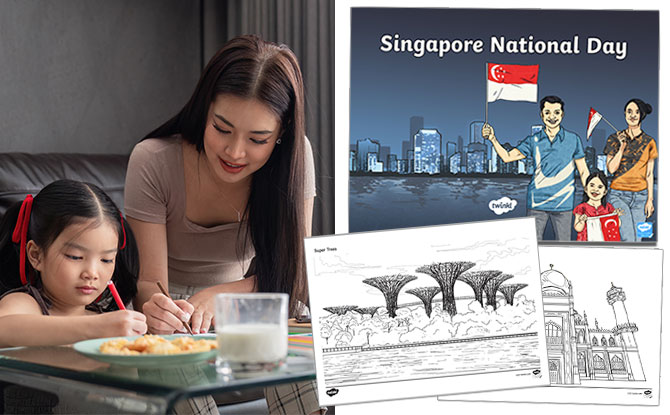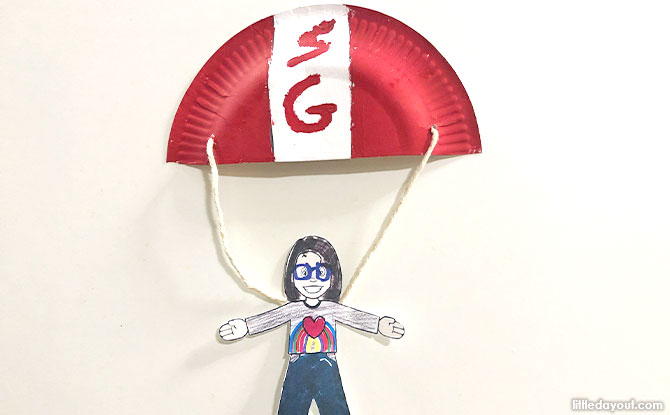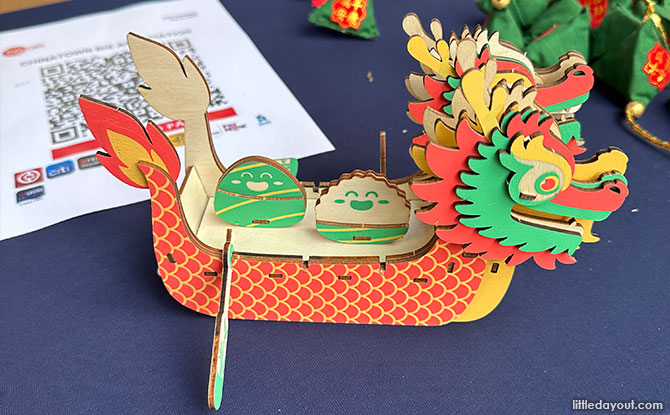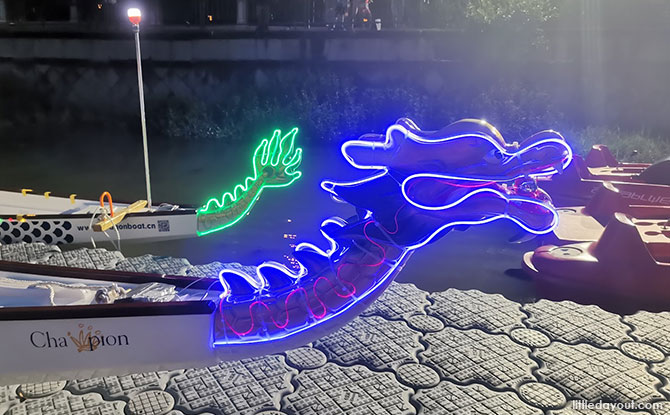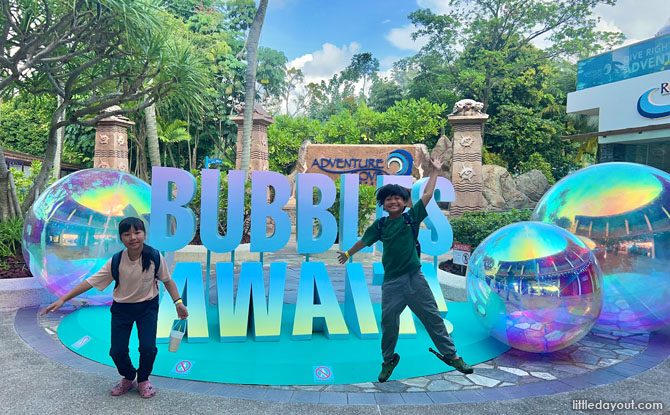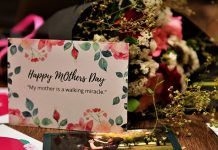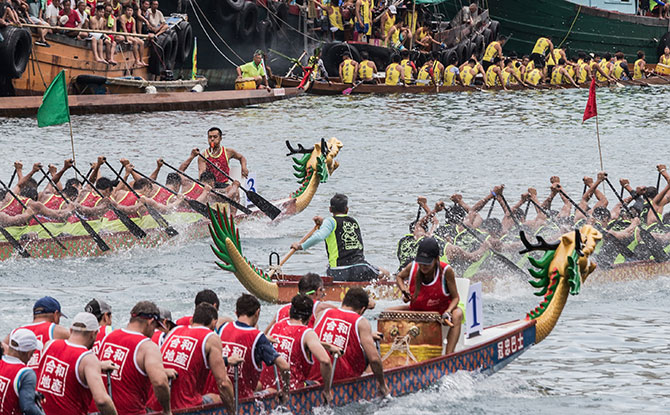
Most of us would know that the Dumpling Festival (also known as the Dragonboat Festival) is near when we smell the fragrance of rice dumplings. Do you know the significance of the festival and why we eat dumplings? Why are there dragon boat races? Perhaps this is an opportunity to learn about cultural significance and incorporate some language learning.
All About the Dumpling Festival
Timing of the Festival
The celebration of the Dumpling or Dragon boat festival is based on the lunar calendar. Typically celebrated on the fifth day of the fifth month, between late May to early June, the festival has its origins in the Warring States era of China.
The Story Behind Dumpling and Dragonboat Festival
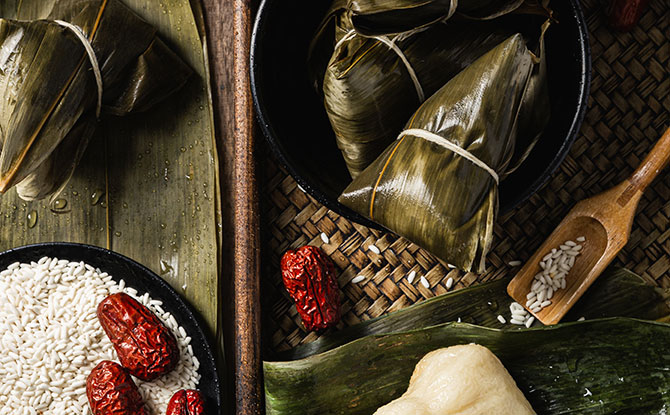
The man behind the festival is famed minister Qu Yuan (340 – 278 B.C) who advocated reform to the state of Chu. However, this angered the emperor and was an opportune time for Qu Yuan’s detractors to get rid of him and he was exiled.
During his exile, Qu Yuan was a prolific poet who wrote poems expressing his love for his country. You can read one of his famous poems “Encountering Sorrow” (离骚 – lí sāo) here.
BE PSLE-READY: Join Expert Educators for Revision Boosters to Empower P6 Students
BURP: Join the Sound Collector on a Whimsical Chase at Esplanade – Theatres on the Bay
WEEKEND IDEAS: Get Inspirational Ideas of Things to Do
In the poem, Qu Yuan pens the sorrow he felt with the corruption in the kingdom. He was determined to remain righteous.
In 178 B.C., he heard that his home was invaded and committed suicide by tying himself to a rock and drowning himself in the Mi Lo river.
Qu Yuan was well loved by his country men and the news of his suicide broke the hearts of the Chu people. They threw cooked rice wrapped in leaves hoping that fish would eat the rice instead of devouring Qu Yuan. Fishermen also bear their oars to try to scare off the fish.
Then, the fishermen used dragon-shaped boats to appease the dragon deities living in the river. This became a sport during the Han dynasty. Such traditions have continued to today with long boats painted with dragon heads and drums that set the pace for the dragonboaters.
Dumplings or Bak Zhang – Various Types and Flavours in Singapore
Sometimes the best ways stories continue to be told is through origin stories like these. Qu Yuan has certainly left his mark, with a delicacy commemorating the death of a patriot. Rice dumplings, Zong4 Zi 粽子 or “Bak Zhang” come in all kinds of flavours according to dialect groups.
From Cantonese-type dumplings to Hokkien, Hakka and Peranakan types, there’s a large variety to try in Singapore. The popular Peranakan version has braised pork, five spice powder and winter melon. My children’s favourite is a “dessert zhang” with no filling and eaten with kaya or sugar.
Rice dumplings are made mainly of glutinous rice, meat, vegetable fillings and then wrapped with dried pandan leaves and bound with string. The shapes of rice dumplings are like tiny pyramids. The rice dumplings are then steamed.
We like to keep our rice dumplings for as long as possible by freezing the cooked dumplings so we can enjoy them even after the dumpling festival.
Dragonboat Racing
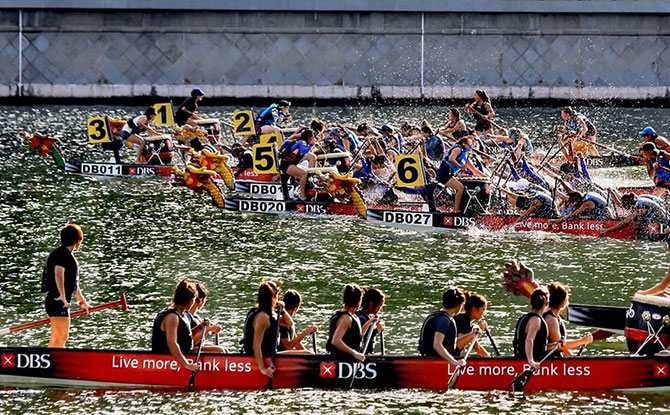
Many Asian countries, and even non-Asian countries now have dragon boat races.
This happens annually where teams from around the world race their dragons to the finish line accompanied by loud cheers and drumming. During the season, you can also see teams practising.
A dragon boat team has 20 paddlers, a drummer in front and a coxswain that steers the boat at the rear. The paddlers have to row in unison to propel the boat forward to reach the finish line.
Teamwork, strength and endurance are necessary skills to be a dragon boater.
The races are exhilarating to watch. Hear the deafening drums and the calls from the dragon boaters as they row their oars furiously.
For those who are game to try out dragon boating, there are rental facilities available around Singapore too.
Other Customs for the Dumpling Festival
Aside from honouring patriot Qu Yuan, the festival has other lesser known customs like hanging of calamus plants in front of the home, kite-flying, balancing an egg. Most of us would not know such quirky customs.
Due to the timing of the festival, it is typically summer with high temperatures. This was believed to bring to life vicious animals and diseases. Hence, Chinese ancestors turned to plants for help and believed that leaves of mugwort and calamus above doors warded off devils and illnesses.
They also wrapped pomegranate flowers around children’s foreheads and bathed in herbs to purify the spirit.
In countries like Taiwan and China, egg-balancing is common in streets during Dragonboat festival. The Ancient Chinese believed that evil can be repelled by balancing eggs. It’s all about finding the centre of gravity in that little egg and some fun heralding in good luck.
If you enjoyed this story, you may also enjoy reading about where to buy rice dumplings or learning more interesting facts about dragon boats.




